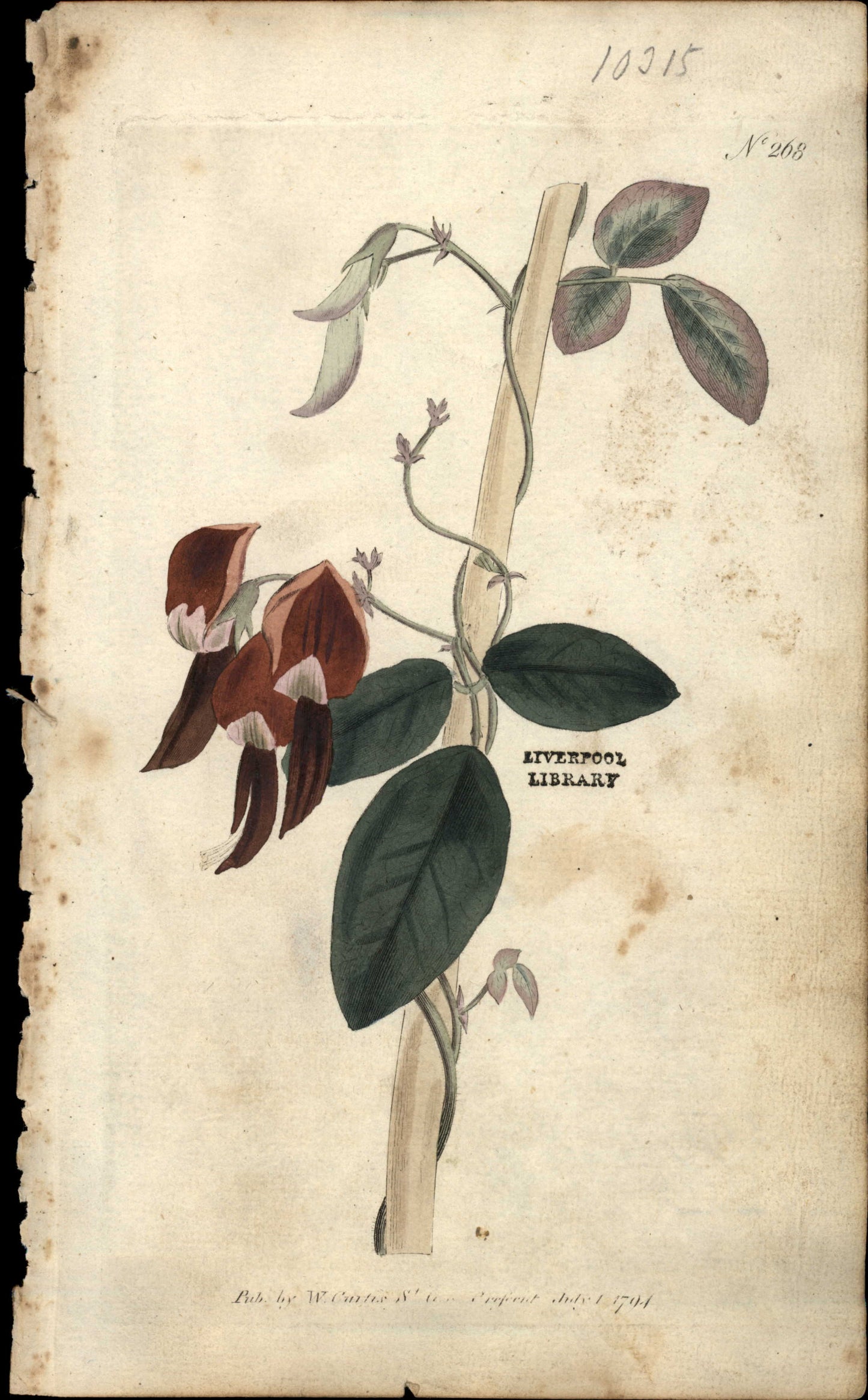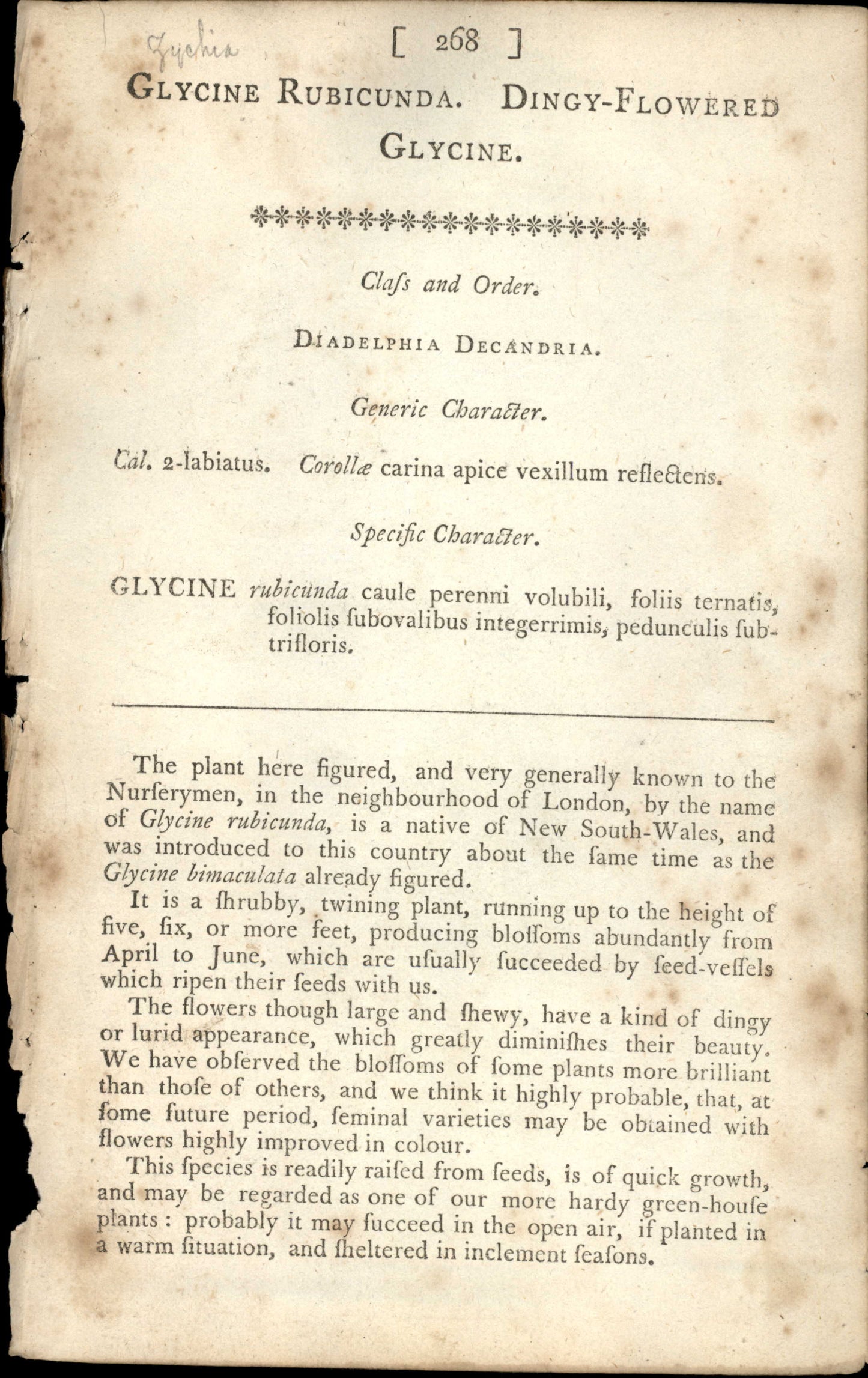Curtis Botanical Magazine
Plate 268 - Glycine Rubicunda
Plate 268 - Glycine Rubicunda
Couldn't load pickup availability
Plate 268
Classification: DIADELPHIA DECANDRIA
Flowering Period: May - June
Publication Date: July 1 1794
Description:
Complete Botanical Text (Cleaned)
10215 Liverpool Library Pub by W Carts st Crepirit Indy 11794 N°268
Zychia
268
Glycine Rubicunda Dingy-Flowered Glycine
Class and Order DIADELPHIA DECANDRIA >
Generic Character Cal 2-labiatus Corolla carina apice vexillum reflectens >
Specific Character Glycine rubicunda caule perenni twolubili soliis ternatis soliolis fubovalibus integerrimis pedunculis fub trifloris
The plant here figured and very generally known to the Nurferymen in the neighbourhood of London by the name of Glycine rubicunda is a native of New South-Wales and was introduced to this country about the same time as the Glycine bimaculata already figured It is a shrubby twining plant running up to the height of five six or more feet producing blossoms abundantly from April to June which are usually succeeded by seed-vessels which ripen their seeds with us The flowers though large and showy have a kind of dingy or lurid appearance which greatly diminishes their beauty We have observed the blossoms of some plants more brilliant than those of others and we think it highly probable that at some future period seminal varieties may be obtained with flowers highly improved in colour This species is readily raised from seeds is of quick growth and may be regarded as one of our more hardy green-houfe plants probably it may succeed in the open air if planted in a warm situation and sheltered in inclement seasons
Raw OCR Text (Original)
10215 Liverpool Library Pub by W Carts st Crepirit Indy 11794 N°268 Zychia 268 Glycine Rubicunda Dingy-Flowered Glycine Class and Order DIADELPHIA DECANDRIA Generic Character Cal 2-labiatus Corolla carina apice vexillum reflectens specific Character Glycine rubicunda caule perenni twolubili soliis ternatis soliolis fubovalibus integerrimis pedunculis fub trifloris The plant here figured and very generally known to the Nurferymen in the neighbourhood of London by the name of Glycine rubicunda is a native of New South-Wales and was introduced to this country about the same time as the Glycine bimaculata already figured It is a shrubby twining plant running up to the height of five six or more feet producing blossoms abundantly from April to June which are usually succeeded by seed-vessels which ripen their seeds with us The flowers though large and showy have a kind of dingy or lurid appearance which greatly diminishes their beauty We have observed the blossoms of some plants more brilliant than those of others and we think it highly probable that at some future period seminal varieties may be obtained with flowers highly improved in colour This species is readily raised from seeds is of quick growth and may be regarded as one of our more hardy green-houfe plants probably it may succeed in the open air if planted in a warm situation and sheltered in inclement seasons
Original botanical print from Curtis's Botanical Magazine
Share





